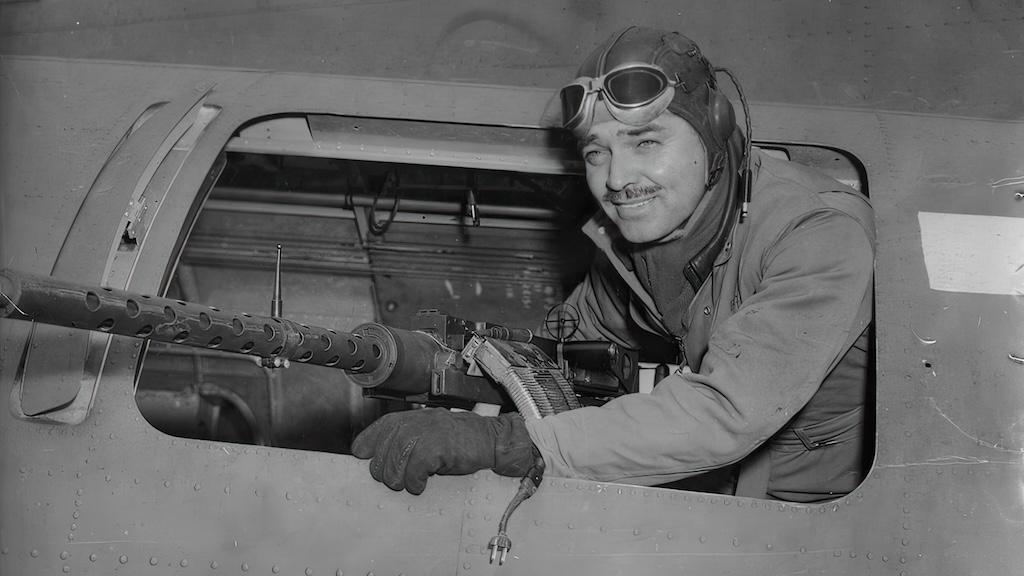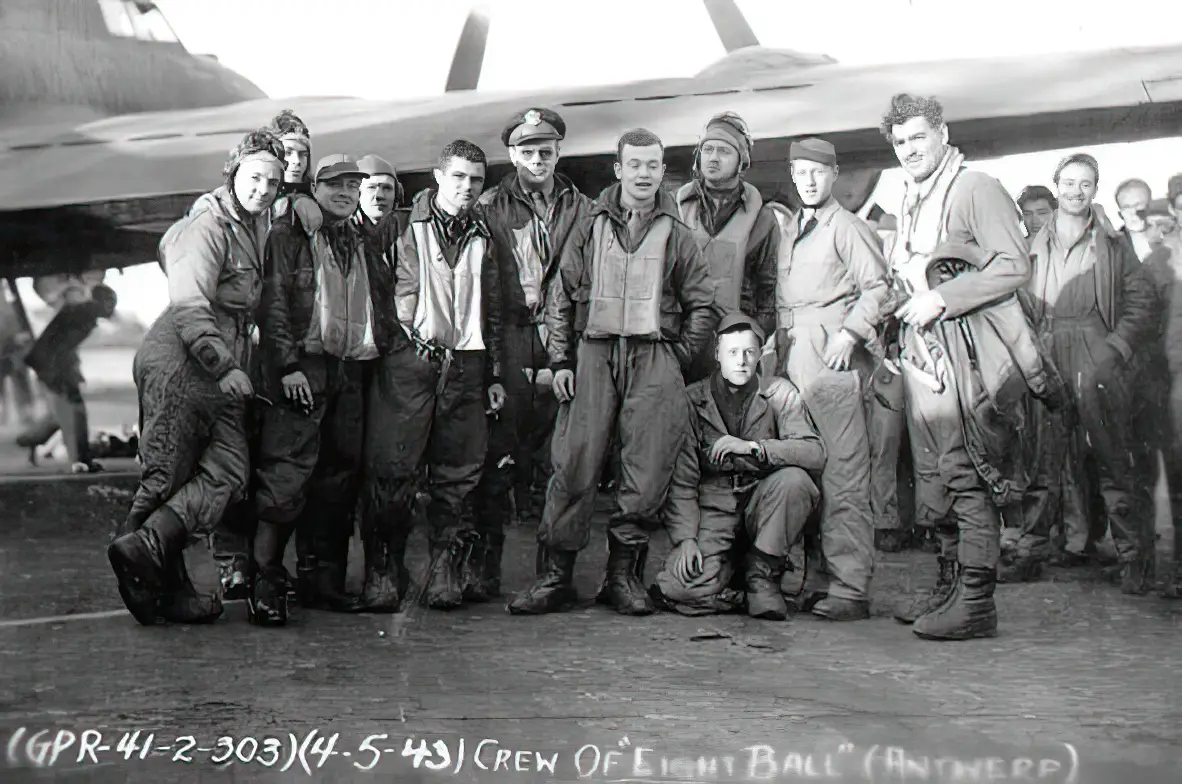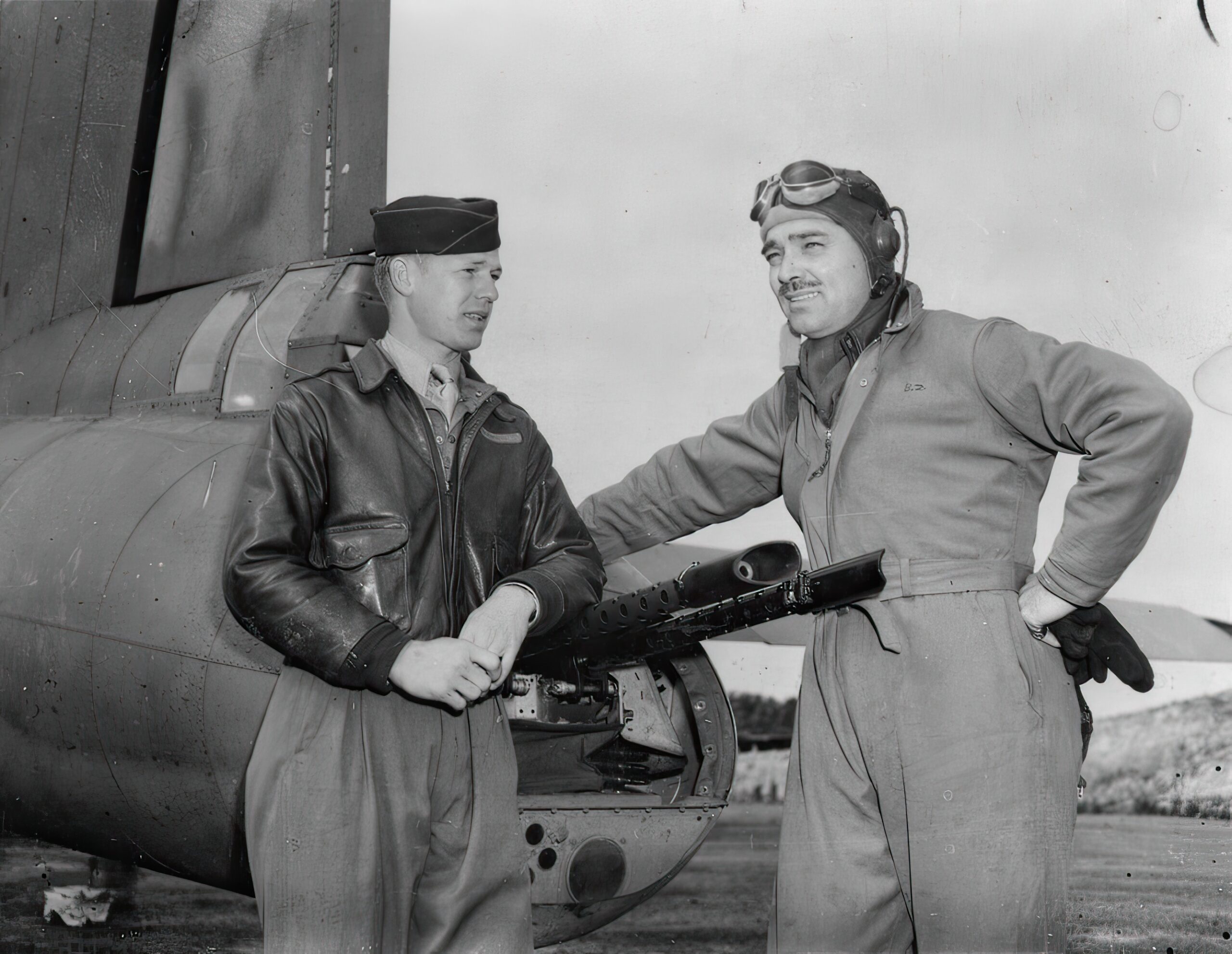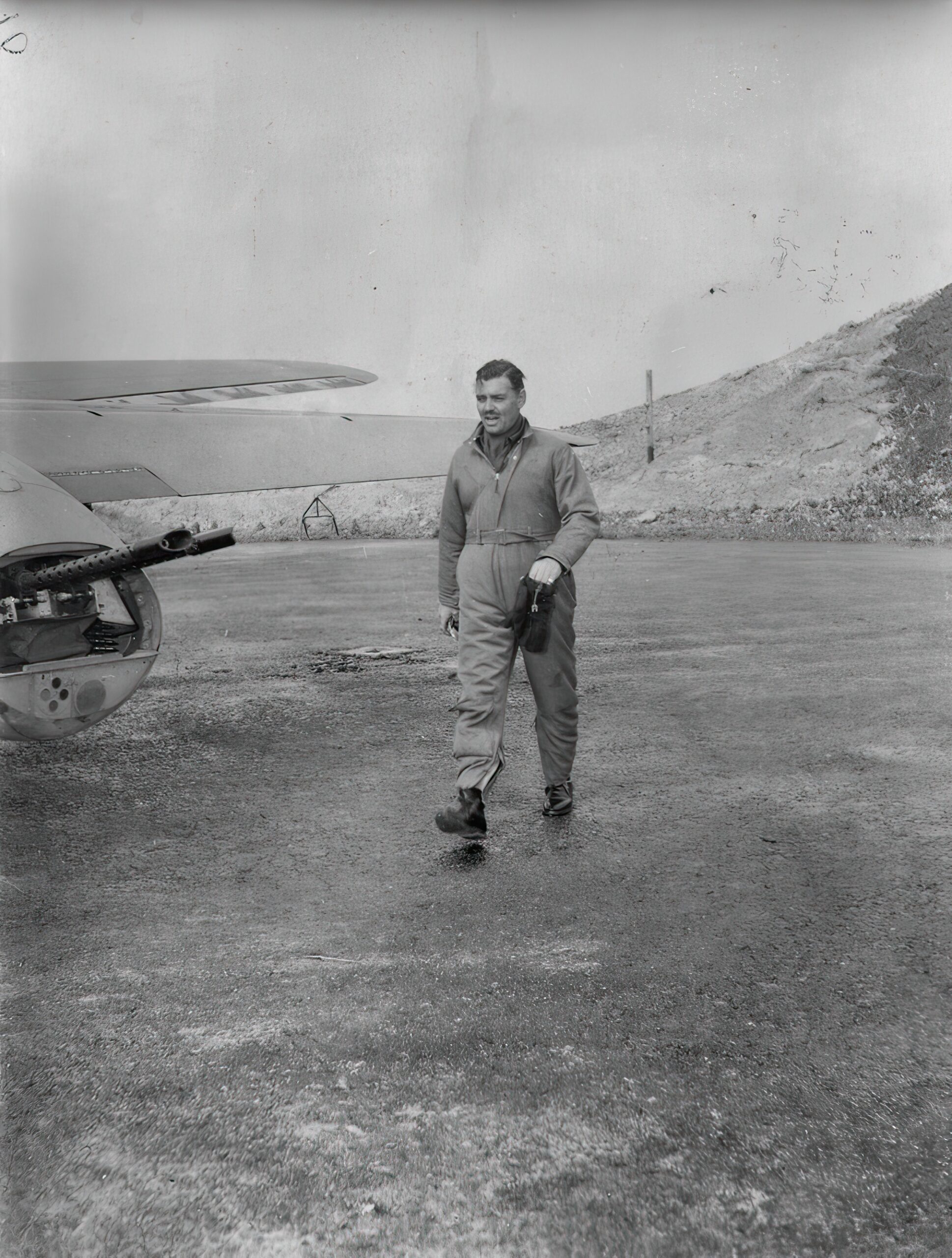The Hollywood Star with a Bounty on His Head: Clark Gable in WWII

From Silver Screen to Airborne Hero
During World War II, numerous stories of heroism and bravery emerge, but few are as captivating as that of a B-17 gunner who drew the attention of the highest echelons of the German wartime command. This wasn’t an ordinary soldier; this was Clark Gable, Hollywood’s reigning king, who found himself targeted by the Reich, with a bounty on his head.
The tale begins with the United States entering World War II after the attack on Pearl Harbor. As America hastened to mobilize its forces in 1941, a personal tragedy would propel Gable, a star at the zenith of his career, into the fray. The untimely death of his wife, Carol Lombard, in a plane crash, coupled with her passionate involvement in the war effort, inspired Gable to enlist, much to the dismay of Hollywood and even President Franklin D. Roosevelt.

The Journey to England
Gable’s entry into the Army Air Corps was not typical. He was offered a unique role – to make a war film about the aviators in England, combining his Hollywood expertise with a taste of real combat. This arrangement seemed to offer a balance, keeping him at arm’s length from the front lines. However, destiny had other plans for the King of Hollywood.
The B-17 Flying Fortress, a symbol of American airpower, was supposed to be an invulnerable sky fortress. Armed with 11 machine guns, it promised to repel enemy fighters with ease. But reality bit hard; the early missions from England suffered heavy losses. Gable witnessed these losses firsthand, his role gradually shifting from observer to active participant.
Clark Gable’s Combat Debut
Gable’s first taste of combat came aboard the B-17 “Eight Ball” on a mission to Belgium. This mission, expected to be low-risk, turned out to be a harbinger of the dire straits American bomber crews would face. Gable’s engagement with enemy fighters was minimal, but the mission left its mark, giving him a firsthand experience of the war’s harsh realities.
Initially viewed with skepticism by fellow airmen, Gable soon earned their respect. His humility and eagerness to share the burdens of war endeared him to the men. Gable was a comrade, sharing the risks and losses of war.
 Clark Gable ww2
Clark Gable ww2
Germany’s Obsession and the Bounty
The upper echelons of the German wartime command, admirers of Gable’s pre-war films, had initially hoped to capture the actor for their propaganda machine. Frustrated by their inability to acquire Gable peacefully, the high command, through their channels, placed a substantial bounty on him. This edict made every mission Gable flew a game of high stakes, with his life and propaganda value hanging in the balance.
Gable’s missions grew increasingly perilous. His flight aboard the “Ain’t It Gruesome” to the Ruhr Valley in Germany was a turning point. The mission faced fierce resistance; flak and enemy fighters battered the B-17s. Gable narrowly escaped death when a flak round pierced his aircraft, a chilling reminder of the bounty on his head.
The Toll of War and Compassion
The impact of war wasn’t lost on Gable. Witnessing death and destruction moved him profoundly. He spent his off-days writing to the families of fallen airmen, a gesture that further cemented his bond with the crew and showcased the depth of his character.
Gable’s last mission, aboard “The Duchess,” was less eventful but significant in marking the end of his combat role. Pressure from MGM and the realization of the risk he posed eventually led to his reassignment away from the front lines. Gable returned to the U.S. with invaluable footage that would later become part of the documentary “Combat America,” offering a unique glimpse into the life of a B-17 crew during one of the most turbulent times in history.
In retrospect, Clark Gable’s wartime service was a testament to his courage, a shift from the glitz of Hollywood to the grim realities of war. Gable didn’t just play a hero on screen; he lived it, flying dangerous missions and risking his life, driven by a sense of duty and a desire to honor his late wife’s memory.






